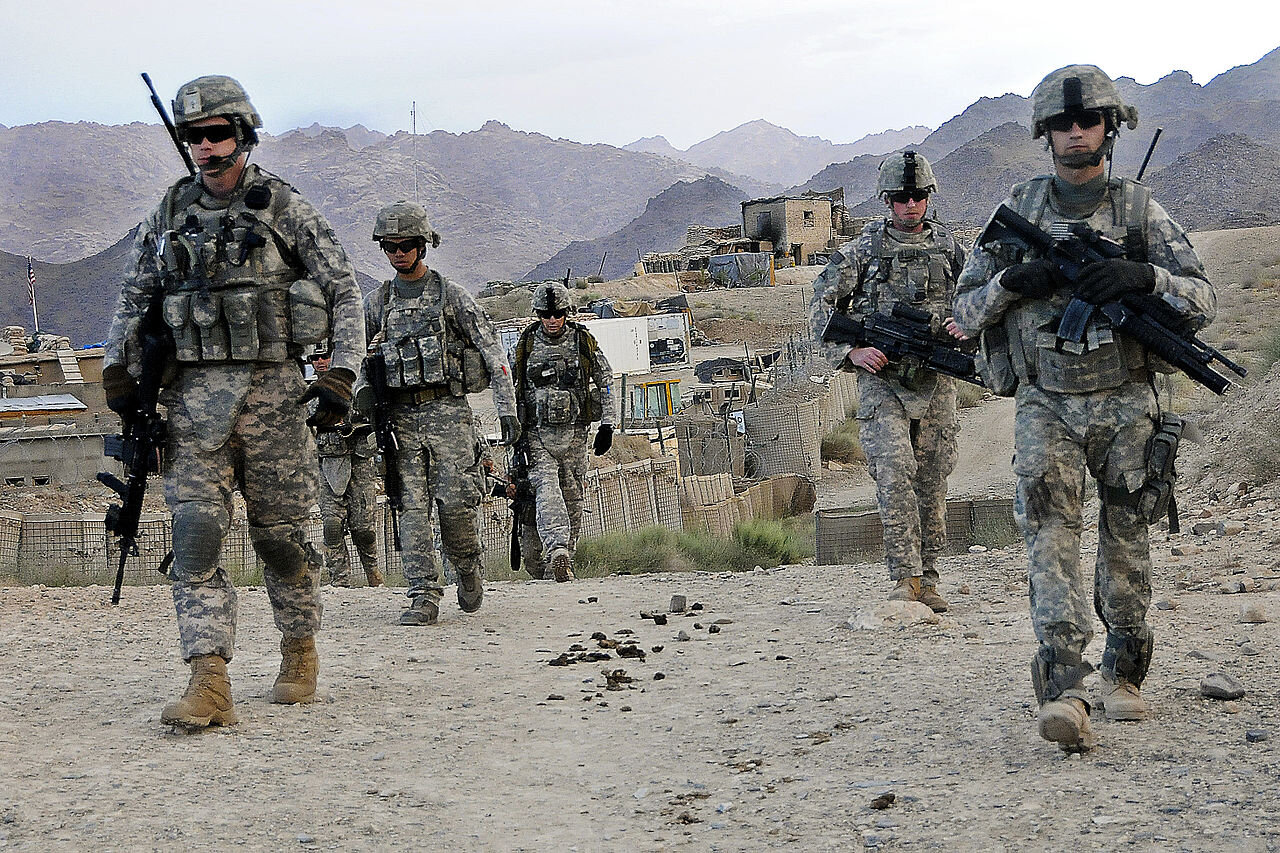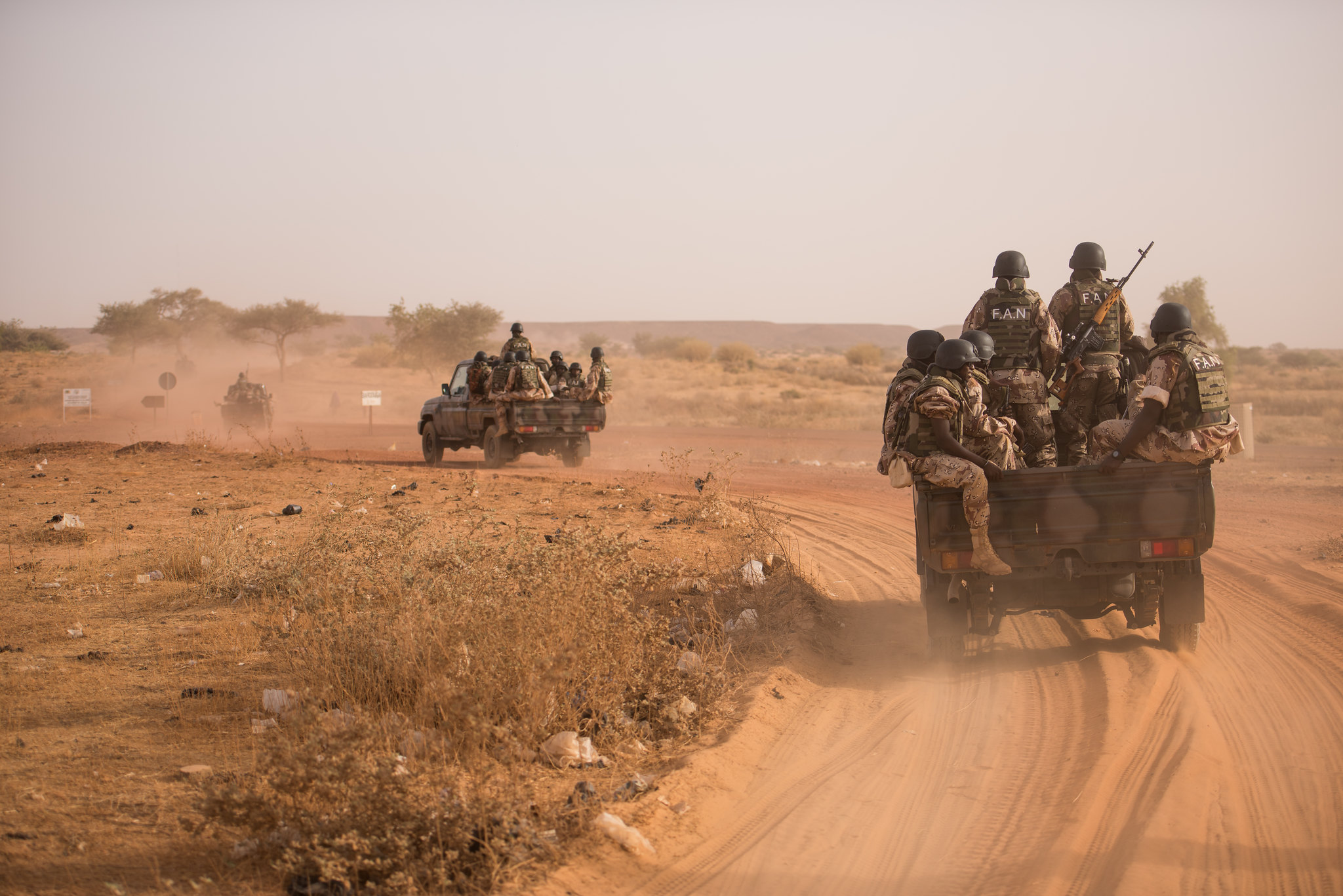PICTURED: U.S. Soldiers depart Forward Operating Base Baylough, Afghanistan. Photo credit: U.S. Army. CC 2.0.
KABUL, Afghanistan. June 27th, 2020. On monday, President Trump ordered another 4,000 soldiers to be withdrawn from Afghanistan, bringing troop numbers to 4,600, the lowest they’ve been since the start of the conflict.
The decision comes as part of the pre-peace agreement President Trump’s envoys signed with the Taliban in Doha, Qatar, last February which laid out a plan for total withdrawal to be carried out over the 18 months following, in order to make room for intra-Afghan peace talks between the government in Kabul and the Taliban.
A recent bombshell by the New York Times reported that Russian spy agencies were paying unspecified “Taliban-linked” fighters bounties for the deaths of American and NATO servicemen in Afghanistan.
The report offered no evidence that any of the Americans killed this year were in response to such bounties, and was based on “anonymous U.S. intelligence officials who were ‘briefed on the matter’”. The unnamed officials also said the intelligence was examined by the National Security Council (NSC) and that the president was briefed on it in the White House
Trump’s opponents in Washington were quick to jump on the story, and the Senate, who have been discussing the National Defense Budget for 2021, passed an amendment to it to block Trump’s withdrawal of troops until such a time as the bounty story could be officially investigated.
The Taliban, Moscow, and Washington have all denied the accusations, while another unnamed intelligence source told Catherine Herridge of CBS News that the Russian-Taliban bounty intelligence was assessed and dismissed as “low-level” by the NSC and that it never made it to the president’s desk.
The report “does not match well-established and verifiable Taliban and Haqqani practices” and lacks “sufficient reporting to corroborate any links,” the source said.
Significant evidence would need to be provided for such a report to be considered accurate, as there is perhaps no country on earth more awash in foreign money and corruption than Afghanistan, according to a national watchdog agency.
PICTURED: Afghanistan President Ashraf Ghani.
One of the world’s most corrupt governments
Under the administration of President Ashraf Ghani, corruption, a stain on repeated attempts by the United States to nation-build in the country, has fallen since the time of Ghani’s predecessor, Hamid Karzai. However, Afghanistan is still one of the world’s most corrupt governments, according to a report from the agency watchdog MEC (Independent Joint Anti-Corruption Monitoring and Evaluation Committee).
In the United States, the budget deficit on spending for all departments is close to $3 trillion, meaning that after spending all the money she makes in tax revenue, the government every year has to borrow or print $3 trillion to fully-fund every federal agency.
In Afghanistan tax revenues for 2018 were around $1.1 billion, yet government officials paid $1.6 billion in bribery money alone. To be fair to the Afghans, that is down almost half from 2016, where bribes paid were as high as $2.8 billion, but in both years more money was paid in bribes than was made in taxes.
The report finds the same waste and corruption in the customs sector, which may have hauled in around $1.3 billion in imports and exports in 2018. Yet $1 billion of that money also went missing that year.
“At least $2 billion is taken as a bribe from the people and this encompasses big corruption in procurement and does not include land-grabbing,” said Nasir Taimori, a researcher at Integrity Watch Afghanistan, who assisted in creating the report along with MEC.
This kind of corruption has meant that supporting the war and nation-building in Afghanistan is becoming a more unpopular opinion in Washington than it once was, and it was during debate on the Senate floor this week that Florida Republican Matt Gaetz noted that “I think the best day to have not had the war in Afghanistan was when we started it, and the next best day is tomorrow. I don’t think there’s ever a bad day to end the war in Afghanistan. Our generation is weary of this and tired of this.”




